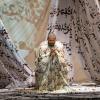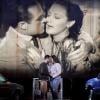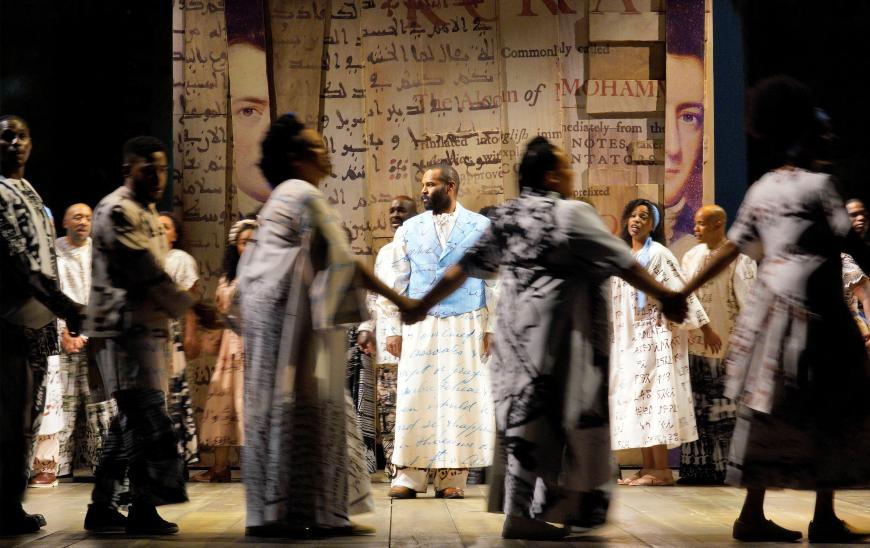
“There is nothing new in the world except the history you do not know.” Harry Truman said that. And this little aphorism, though taken a bit out of context, kept running through my mind as I took in Rhiannon Giddens and Michael Abels’s astonishingly moving new opera Omar at the Dorothy Chandler Pavilion.
Tenor Jamez McCorkle, who sang the title role in Los Angeles Opera’s staging of Omar’s West Coast premiere Saturday night (Oct. 22), as well as in the world premiere at Spoleto Festival USA last May, guesstimated that 99 percent of those involved in the production had never heard of Omar ibn Said before. (And neither had I.) Yet the story of Said, an Islamic scholar and writer in early 19th-century Senegal who was captured and sold into slavery in the American South, has proven potent enough to inspire a sustained burst of multifaceted musical creativity and even eloquence, as well as a career-defining role for McCorkle.
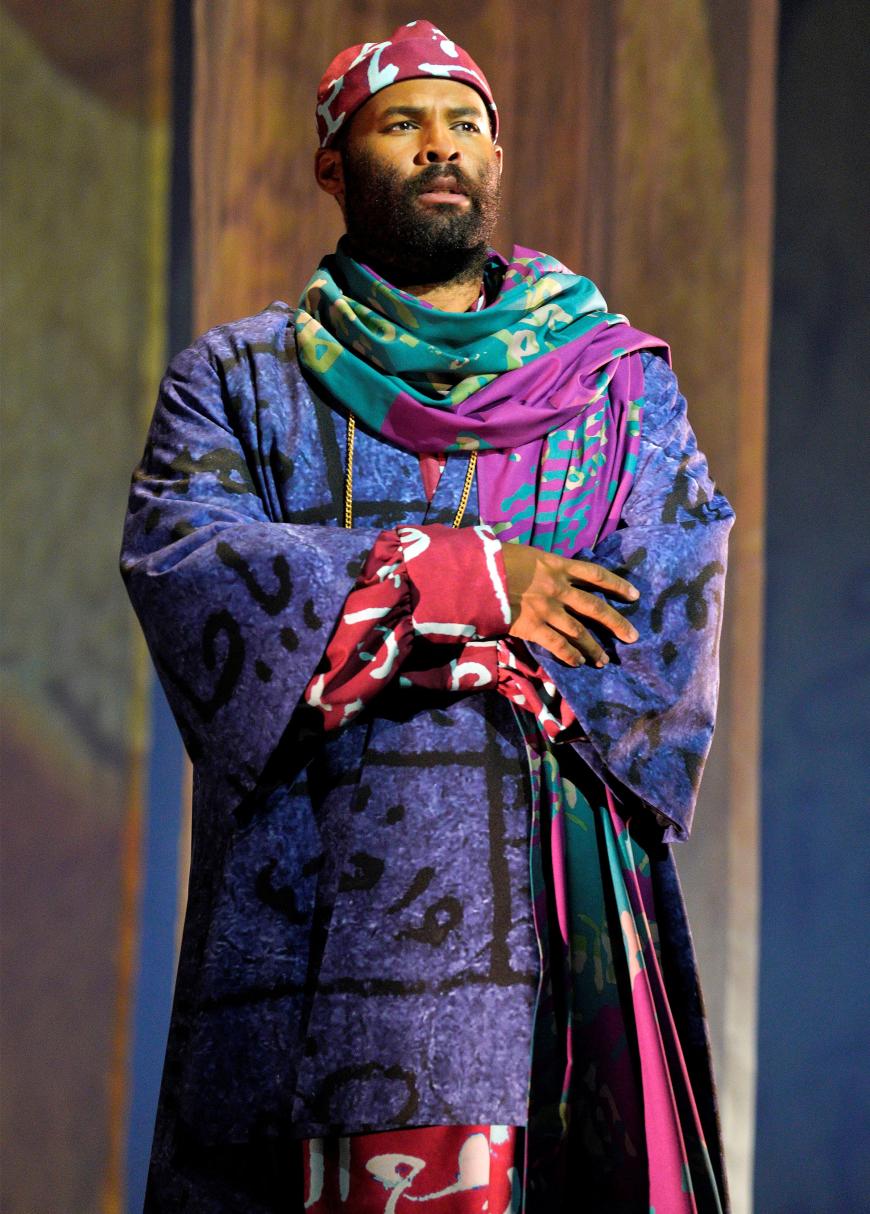
Said’s autobiography furnished the basic outline of the plot, which tracks his saga from Senegal to the slave market of Charleston, S.C. (ironically and purposefully the city in which Spoleto is held), a plantation nearby, a jail cell in Fayetteville, N.C., and finally a less-onerous Fayetteville plantation where he spent the rest of his life as a slave, dying in 1864 at age 93 or 94. Throughout the opera, Omar’s dignity and faith in Allah never wavers, even when subjected to the inhumane conditions of the Atlantic Passage, the humiliations of slavery, and his ambiguous conversion to Christianity; his allegiance to Islam is expressed in code in his writings. Omar is spurred on by his mother Fatima at home in Senegal and later by her posthumous spirit in the New World, urging him to write about his experiences as a slave and as a Muslim.
While it’s common and fashionable in these post-George Floyd days to condemn American racism past and present in works of art, we don’t often see it done in such nuanced terms. Omar’s two slave owners, Johnson (the “nasty” one) and Owen (the “kind” one), are portrayed as two sides of the same coin — and indeed, are played by the same singer, bass-baritone Daniel Okulitch. Johnson is irredeemably evil and sadistic, no question, but Owen is more complicated. He is relatively (the key word) good to his slaves, who do seem more content with their lot than others. But when he lets it slip about how their singing and dancing is in their blood, it’s clear that he is just as condescending toward Black people as any Southerner of the time. He is also very much the Christian evangelist, converting slaves for their own peace of mind but also for his own prestige in the community. A very mixed bag, this Owen.
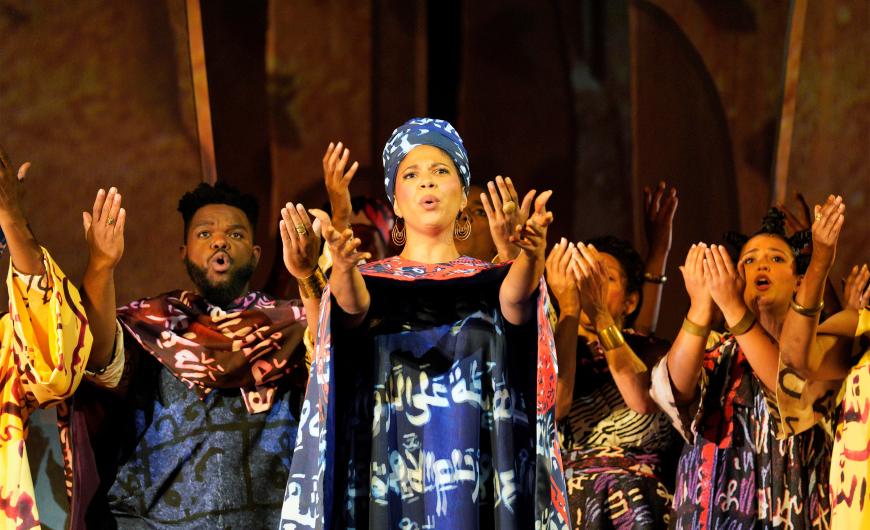
The score — to which Giddens apparently contributed melodic lines, the structures of numbers, and the libretto, with Abels expanding the texture to operatic dimensions for a conventional pit orchestra — is also a mixture of things, and wonderfully so. An old Jamaican slave fiddle tune opens the opera, giving way to Senegalese and Arabic-influenced music whose peaceful atmosphere is shattered by the slave traders. Not surprisingly for Giddens, a superb singer of spirituals, there are many such passages in the score from the disembarking of the slave ships onward; one has a spirited call-and-response routine, others evoke the grandeur of Porgy and Bess (which is also set in Charleston not far from the site of the slave market). Later on, there are formal “arias” for Julie, the slave girl who befriends Omar even though he cannot understand English yet, for Omar himself, and for other principals, as well as lively folk dances. The music from Africa recurs, usually when the spirit of Fatima visits Omar, reminding him to stay in touch with his roots. As in Porgy, the chorus often takes center stage, representing the communities in Africa and America.
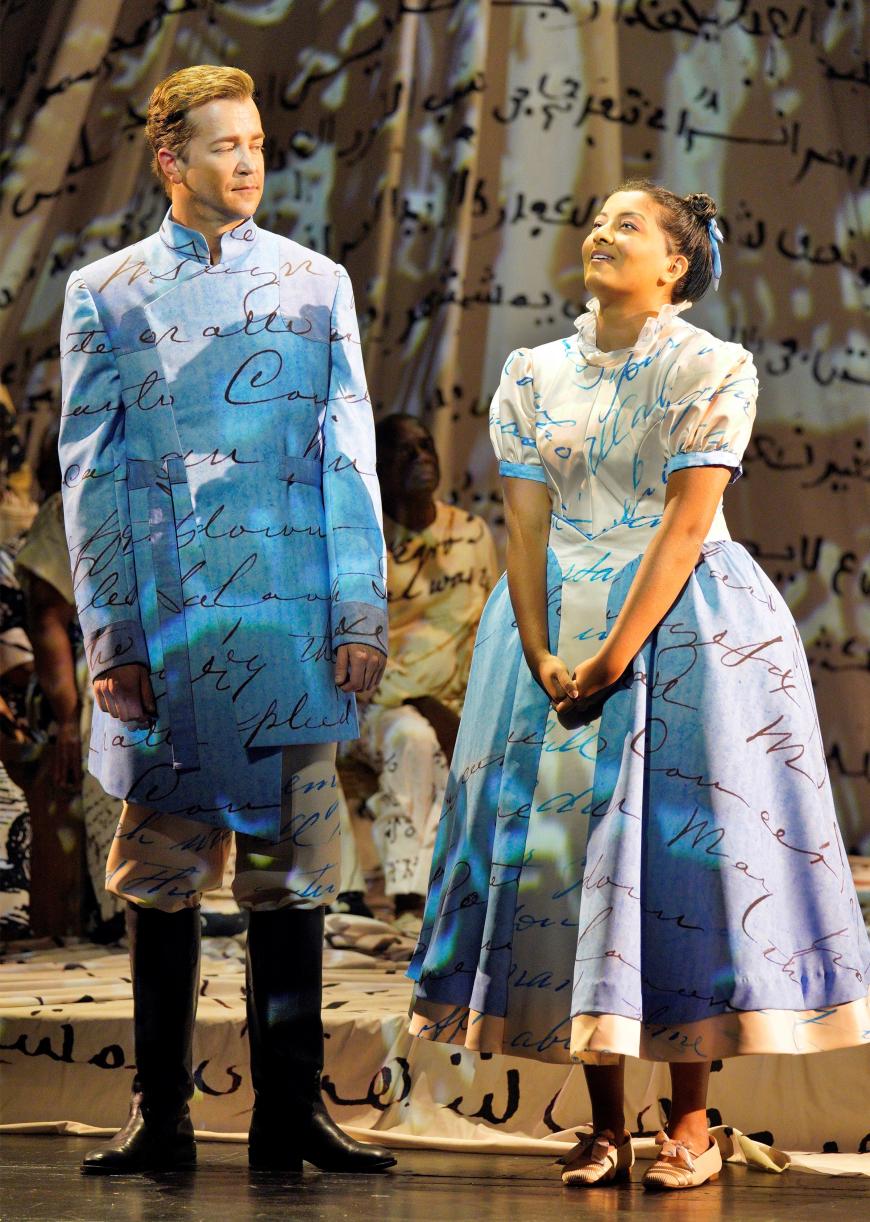
The general flavor of the score is strongly tilted toward Giddens’s eclectic, possibly limitless interests. Yet the overall feeling is that of simplicity and directness in a thoroughly tonal framework — and I mean that as a compliment, for this is a real folk opera of the type to which George Gershwin aspired when he wrote Porgy. Giddens and Abels don’t try to tug blatantly at the heartstrings (although a song for Owen’s daughter Eliza in Act 2 veers very close to that), and they don’t have to, for we are emotionally moved by the situations presented onstage and the music as is. Nor is there any explicit violence in the staging. The injustices speak for themselves.
Expanding the original production to fit the Pavilion’s expansive stage, director Kaneza Schaal delivered a scheme of streamers, scrims, drapes, and projections filled with Omar’s Arabic writings or awful artifacts from the Old South, like price lists of slaves according to age. The most striking vista was Omar’s jail cell, in which huge drapes containing Omar’s writings went from floor to ceiling in place of prison walls. There were telling little touches, like Omar, upon being converted to Christianity by a turquoise blue-outfitted Owen, being obliged to wear a vest of the same color that, like his new religion, obviously didn’t fit him.
Of the huge cast, one can single out the compassionate mezzo-soprano of Amanda Lynn Bottoms as Fatima, soprano Jacqueline Echols’s all-out operatic rendering of Julie’s big number in Act 2, mezzo-soprano Deepa Johnny’s sweet Eliza, and the ambidextrous ability of Okulitch to take on two diverse characters (Johnson and Owen) as if he were two entirely different singers. There was another instance of doubling up characters to illustrate two sides of a coin — tenor Barry Banks singing both the amoral Auctioneer and Owen’s friend and co-conspirator, Taylor. Kazem Abdullah was the sensitive conductor.
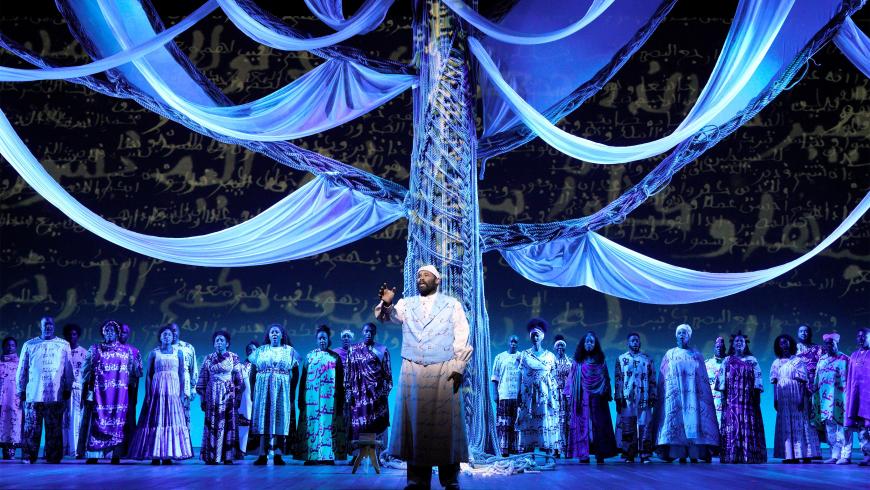
Finally, we come back around to McCorkle, whose role as Omar expands in scope and depth at a steady pace. The tenor started out fairly reticently while his man was the studious scholar in Senegal and gradually built the character, gaining stature and sheer volume on his path forward. It seemed like he was conserving his strength for the expansive finale that Giddens, Abels, and Schaal had prepared for him. First came a soliloquy with a literal and coded Psalm 23, then an amen chorus, with Julie and the spirit of Fatima urging Omar to write his book. The lighting on the rope tree in the background symbolically turned from Christian blue to African orange, the music changed to a percussive dirge, and projections of present-day resonances of America’s past appeared.
And as the orchestra and McCorkle rallied, members of the chorus from around the hall gathered for a grand, emotional finale in surround sound, trying to make a universal statement that transcended religion. I can’t say if they entirely succeeded. But there may not have been a dry eye in the house.


